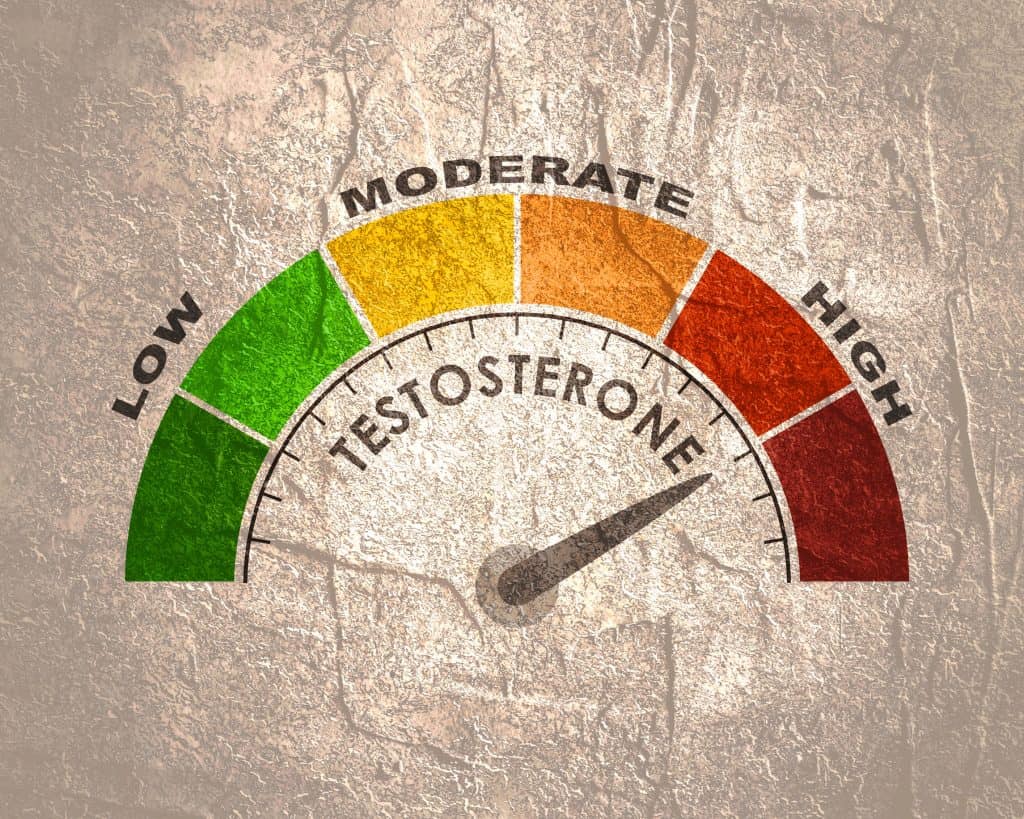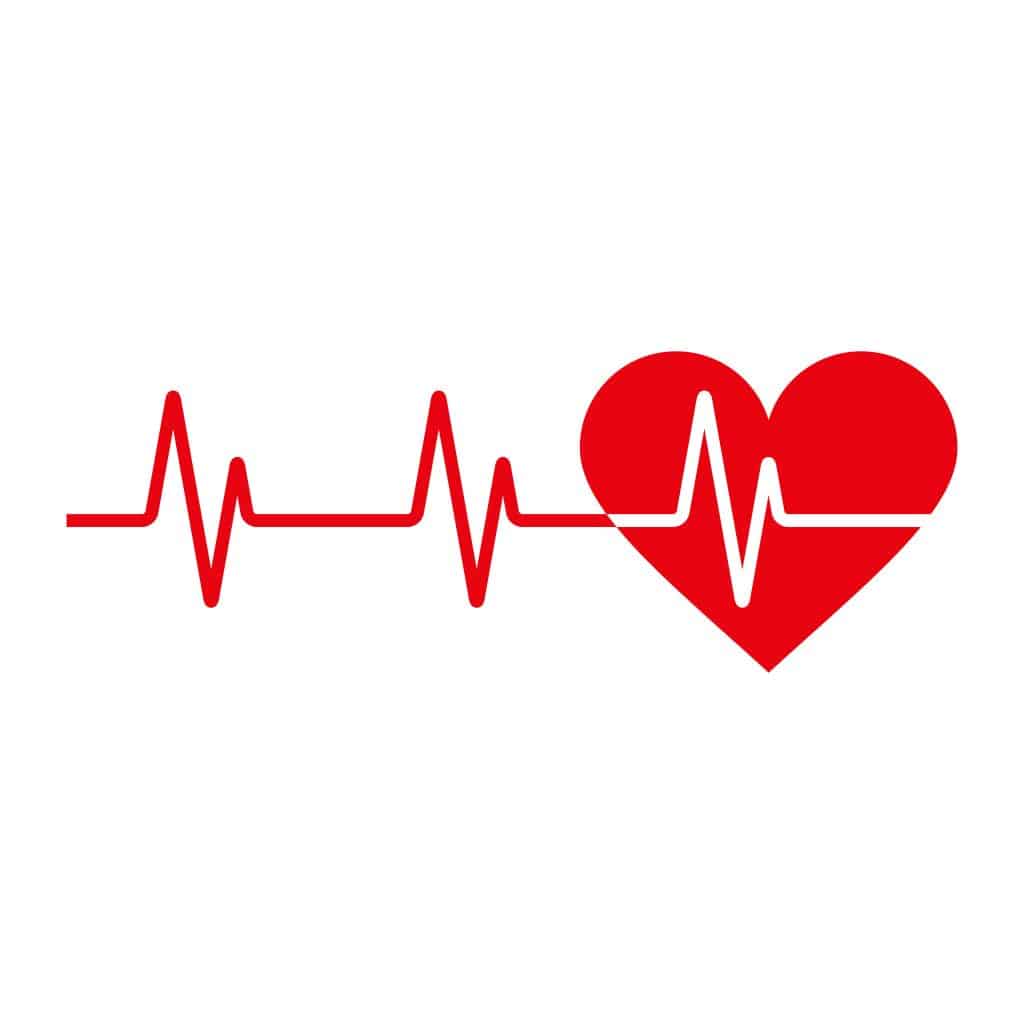Does Testosterone Increase Heart rate? A Helpful, Easy Guide
Posted by Prescription Hope - See Editorial Guidelines (Last Updated On: Mon Jul 10 2023)
Testosterone is a hormone with specific uses and characteristics, but one held belief is that testosterone increases heart rate. So in this article, we’re going to look at whether testosterone increases heart rate and provide some answers.
According to Fitbit, Men between the ages of 40-49 have the highest average RHR or resting heart rate among males at 64.6 BPM.
However, one source is rarely sufficient, and many unmeasured factors could affect your heart rate. Here we explain if testosterone is one such factor.
Does testosterone increase heart rate? Some studies support the idea that testosterone increases heart rate. New research is challenging the effects of testosterone in the body. The U.S. Food and Drug Administration now requires testosterone products to warn of a possible increased risk of heart attack

Now that you have the summary in mind, we can more easily understand the correlation between testosterone and whether it can affect heart rate. Let’s start by explaining more about testosterone.
Also, see our popular guide on 6 practical tips to keeping your heart healthy.
What is testosterone?

Let’s look at some important facts about testosterone below.
- Testosterone is the major male hormone and belongs to the family of hormones called androgens by those in the medical world.
- It derives from the Greek words for man-maker.
- Testosterone is a hormone not only found in humans but other animals too.
- Testosterone production starts to increase significantly during puberty and then begins to drop, usually on or around the age of 35 to 40.
- It is usually considered a male hormone, but you may be interested to discover that women also have the capacity to produce testosterone.
- The testicles primarily make testosterone in men, whereas in women, the ovaries also produce testosterone, usually in much smaller amounts.
- Testosterone is most commonly associated with sex drive and has a pivotal role in the production of sperm.
But while testosterone’s effects on many organs are well established, new research is now challenging old beliefs about how this hormone affects a man’s heart, circulation, and metabolism.
Testosterone also:
- Influences muscle and bone mass
- Affects how fat is stored
- Stimulates bone marrow in red blood cell production
- Contributes to aggressiveness
- Increases chest hair
- Can cause male pattern baldness
With the above summary of testosterone, let’s explain how this male hormone affects the cardiovascular system and heart health.
How does testosterone affect the heart?
According to the American Urological Association, approximately 2 out of 10 men older than 60 have low testosterone, with a slight increase to 3 out of 10 men once in their 70s and 80s.
Testosterone has several important effects on the cardiovascular system. In men, as stated previously, levels begin to decrease with age.
It is this decrease that has been historically associated with an increase in cardiovascular (heart) risk. The dip in testosterone levels may increase a man’s risk of developing coronary artery disease.
Testosterone has been reported to have direct vasodilatory effects on coronary arteries in men with coronary heart disease.
However, according to recent research outlined in the National Center for Biotechnology Information from The DeBakey Heart and Vascular Center based in Houston, there were improvements of known cardiovascular risk factors with testosterone therapy and reduced mortality in those men studied who had testosterone therapy vs. untreated men.
Athletes who abuse testosterone and other androgenic steroids have a sharply increased risk of high blood pressure, heart attack, and stroke, according to a report by Harvard. Therefore, high doses of testosterone can have a negative effect on cardiac risk.

Does testosterone therapy increase or affect heart rate?

While previous studies have suggested a link between testosterone therapy and heart disease, the connection isn’t clear.
Some studies found that after 6 months of testosterone therapy, there was an increase in cholesterol of 55 men over 65 years undergoing testosterone therapy. One’s cholesterol level is one potential measurement for determining a person’s heart health. Other research shows no significant change in cholesterol levels.
It’s worth also noting that some studies actively showed decreased cholesterol.
Other studies have found a higher frequency of death and heart problems in men who had coronary artery disease and received testosterone therapy.
However, the U.S. Food and Drug Administration now requires testosterone product labels to warn of a possible increased risk of heart attack and stroke.
Potential negatives of therapy
The FDA now advises that testosterone should be approved only for people who have low testosterone because of certain medical conditions.
According to Richard Becker, director of the University of Cincinnati’s Heart, Lung and Vascular Institute, testosterone is believed to contribute to hardening of the arteries, and “people taking large doses are more likely to form blood clots.”
Blood clots are, of course, potentially dangerous and require further examination to identify the potential for this happening, which could lead to the need for preventative medications.
This may lead to considering the use of heart medications, taking into account other factors, such as whether heart medications will make you tired.
If you’re currently taking medications to deal with testosterone levels, heart-related conditions, or any other ailments, then it’s worth enrolling with us here at Prescription Hope. We may be able to provide your meds for just $60.00 per month per medication through Prescription Hope’s medication access service.
Side effects of low testosterone
Some men have low testosterone levels. This is called testosterone deficiency syndrome (TD), sometimes referred to as low testosterone or low-T.
According to experts, reduced testosterone levels in men with congestive heart failure may be associated with increased mortality.
Although testosterone acts directly on many issues, many of its negative aspects only occur after being converted into dihydrotestosterone (DHT), another male hormone.
Men can experience a range of symptoms if testosterone decreases more than it should. Low testosterone, or “low-T,” is diagnosed when levels fall below 300 nanograms per deciliter (ng/dL).
- Diabetes
- Metabolic syndrome
- Low sex drive
- Irritability
- Fatigue
- Erectile dysfunction
- Depression
- Benign prostatic hyperplasia (BPH)
- Prostate cancer
What are the side effects of too much testosterone?
Along with the potential to increase heart rate, too much testosterone in both men and women can also lead to some of the following symptoms.
- Decreased testicle size
- Prostate swelling
- Breast enlargement
- Fluid retention
- A decrease in sperm count
- Increase in red blood cells
- Increased sleep apnea
- Oily skin or acne
Testosterone recommendations
It’s recommended that if you’re a male taking testosterone, you should report any of the following conditions to your doctor and seek medical attention immediately, as they may be a sign of a heart attack:
- chest pain
- shortness of breath or trouble breathing
- weakness in one part or one side of the body
- slurred speech

Conclusion
We hope this has provided an overall guide on whether testosterone increases heart rate. As always, before making any changes to your medications or looking at taking new ones, consult with your doctor or relevant medical specialist beforehand to ensure it is the right course of action for you.
For more questions regarding your specific condition, always consult your healthcare provider.
If you’re having trouble affording any of the medications you’ve been prescribed, visit our home page to learn more about Prescription Hope’s medication access service, compare the costs of your current prescriptions, and see how we can help obtain your medications at a cheaper price. Fill out an application today and start receiving Brand-Name prescription medications at your doorstep. Call us at 1-877-296-HOPE (4673) to speak to one of our representatives, we’re always happy to see how we can help.
ENROLL



